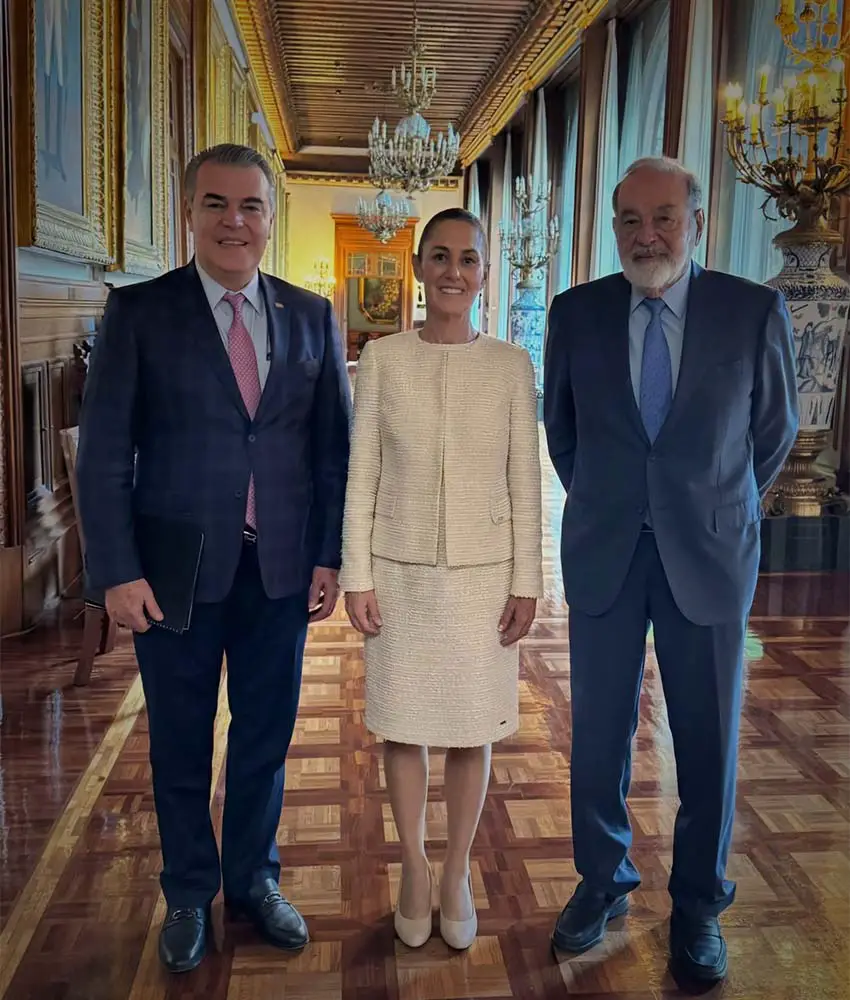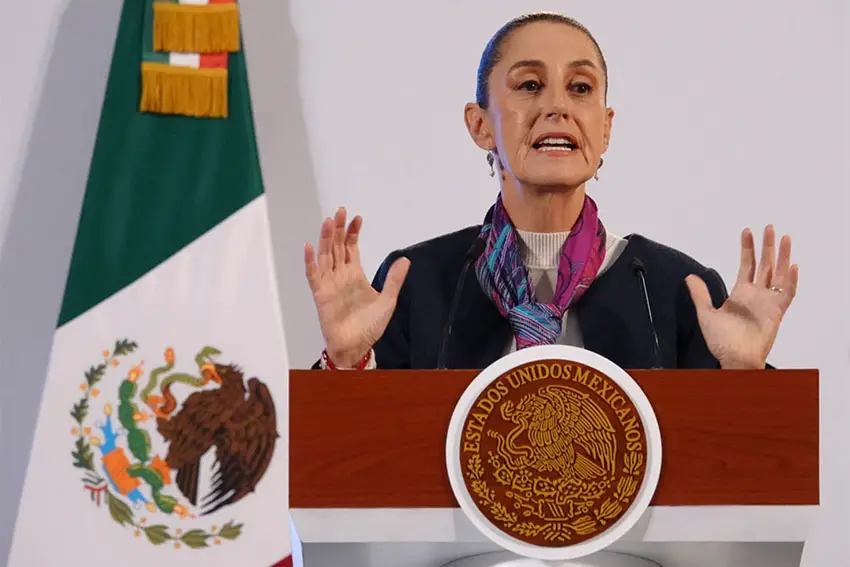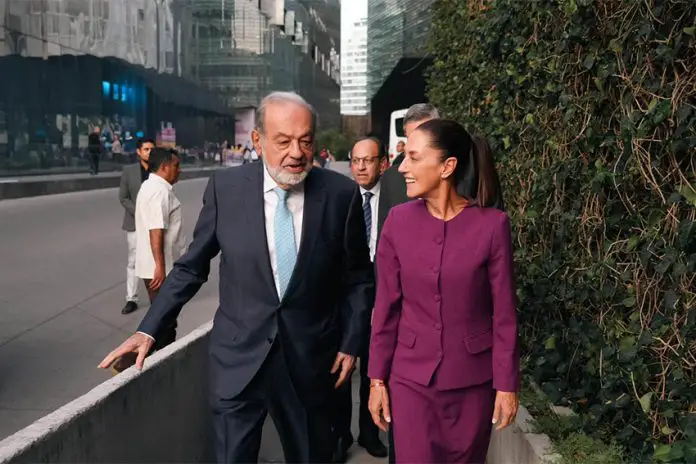The Mexican economy is currently slowing, but Carlos Slim offered an optimistic forecast for the years ahead after a meeting with President Claudia Sheinbaum on Tuesday.
After leaving the National Palace in the historic center of Mexico City, Mexico’s richest person was asked for his opinion on the current state of the Mexican economy and the outlook for Latin America’s second largest market.

“Is a good year coming for Mexico?” asked a reporter.
“Many years. Many years. Many very good years in the future,” Slim said as he slowly departed in his car with Business Coordinating Council (CCE) President Francisco Cervantes seated next to him.
The octogenarian billionaire, owner of companies such as Telcel, Telmex, Sanborns and Carso Infrastructure and Construction, said that the Mexican economy is currently in “good” shape, despite slowing growth this year, and declared that it has “a lot of potential.”
The economy has “a lot of strength for when we start doing more significant things with the United States,” said Slim, appearing to refer to joint initiatives such as the Mexico-U.S. semiconductor partnership.
The magnate — currently the 19th richest person in the world, according to Forbes — said that there will be “a lot of private investment” in Mexico in the coming years, and asserted that 2025 will be a “very important” year as “many” new projects will commence.
Slim said that his companies would collaborate with the government on some projects, but didn’t reveal which ones. Asked whether he would contribute to the construction of new rail projects planned by Sheinbaum, he said he didn’t yet know.
#Astillero, columna de @julioastillero
Ayer visitaron Palacio Nacional el hombre más rico del país y uno de los más relevantes del mundo, #CarlosSlim, y el presidente del Consejo Coordinador Empresarial (@cceoficialmx) , Francisco Cervantes. Según los primeros reportes, se… pic.twitter.com/3o0KYOg6G5
— La Jornada Impresa (@LaJornada) October 23, 2024
Slim has enjoyed a close relationship with both Sheinbaum and her predecessor, Andrés Manuel López Obrador.
Carso Infrastructure and Construction led a consortium that built one section of the Maya Train railroad during the six-year term of former president Andrés Manuel López Obrador, and also contributed to the construction of Line 12 of the Mexico City metro, an elevated part of which collapsed in 2021, claiming the lives of 26 train passengers.
Cervantes, the CCE president, told reporters that private and public investment was the main focus of the meeting with Sheinbaum.
“Extraordinary meeting with the President Claudia Sheinbaum and the Engineer Carlos Slim to promote national and foreign investment, create jobs and combat poverty,” he wrote on social media.
“… There are a lot of opportunities ahead for our economy and a good future for Mexico,” Cervantes said.
Sheinbaum: Slim will help ‘boost’ private investment in Mexico
At her morning press conference on Wednesday, Sheinbaum said that she spoke to Slim in “general terms” about “how he sees the country” and “the importance of private investment.”

“I spoke to him about the relocation and regional development program we have,” she said, referring to the government’s efforts to attract foreign companies to Mexico and ensure that nearshoring investment is spread across the country.
“He was very interested,” Sheinbaum said before describing Slim as a very “learned man with whom it’s always worth speaking.”
“It was a polite conversation,” she said, adding that it was particularly focused on how Slim can help the government “boost private investment … for the development of the country.”
She reiterated that the aim of investment is not just economic growth but also “development with well-being.”
“So it was a very good discussion, and the truth is he’s going to help us get ahead,” said Sheinbaum, who last week assured Mexican and United States business leaders that their investments in Mexico are “safe.”
Slim predicted in late 2022 that the Mexican economy would boom in coming years as the United States reduces its reliance on Chinese-made products. At the same time, he said that increased investment in manufacturing capacity in Mexico could spur annual economic growth of 6% or higher, almost double the economic expansion recorded in 2023.
The new federal government appears determined to reduce Mexico’s reliance on Chinese imports by increasing domestic manufacturing capacity. Economy Minister Marcelo Ebrard recently said that the Sheinbaum administration is looking at “how we can reduce all the imports we have” and aiming to “increase what is produced in Mexico.”
With reports from El Financiero, Aristegui Noticias, La Jornada and Milenio
